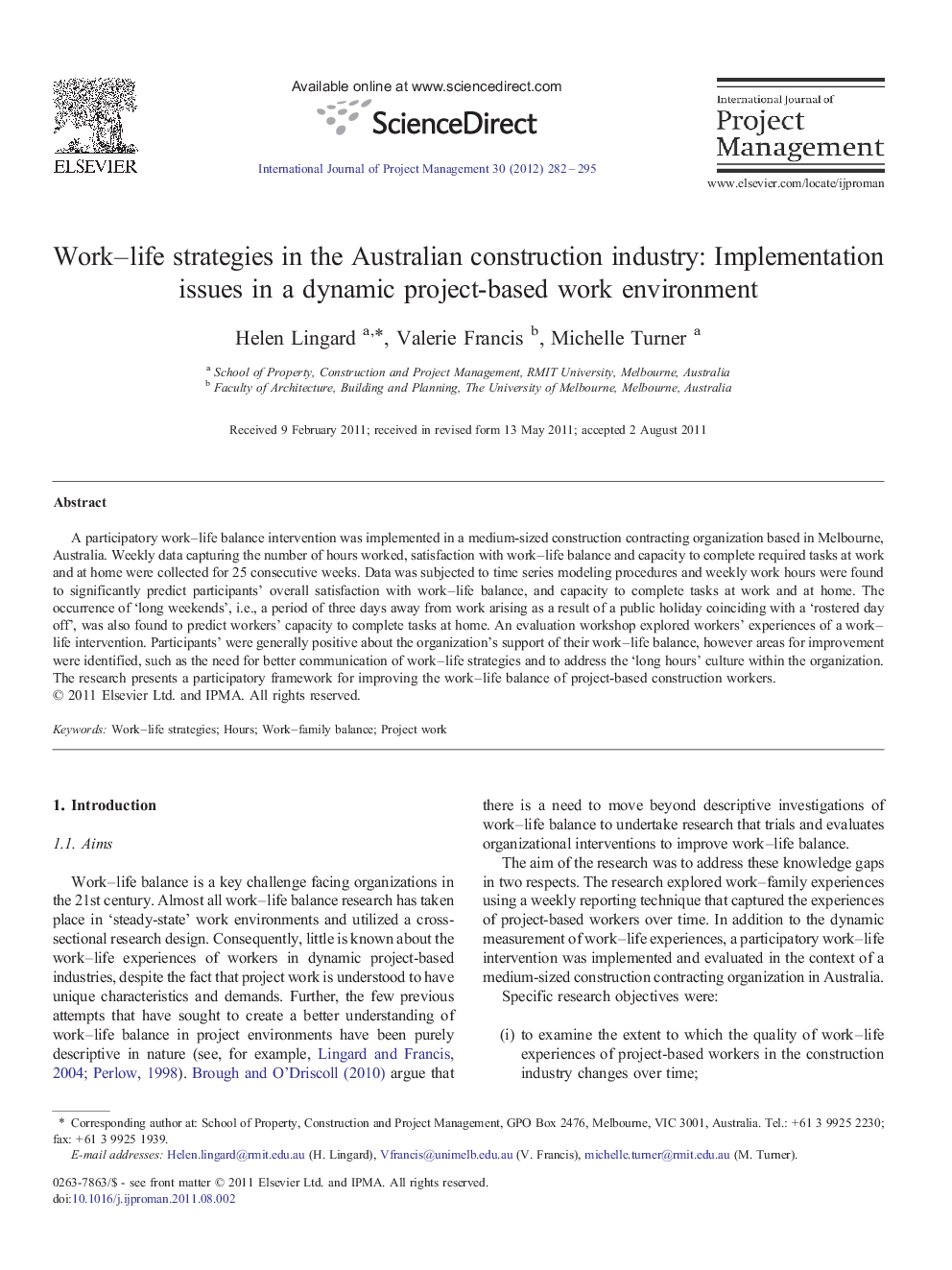| Article ID | Journal | Published Year | Pages | File Type |
|---|---|---|---|---|
| 276783 | International Journal of Project Management | 2012 | 14 Pages |
A participatory work–life balance intervention was implemented in a medium-sized construction contracting organization based in Melbourne, Australia. Weekly data capturing the number of hours worked, satisfaction with work–life balance and capacity to complete required tasks at work and at home were collected for 25 consecutive weeks. Data was subjected to time series modeling procedures and weekly work hours were found to significantly predict participants' overall satisfaction with work–life balance, and capacity to complete tasks at work and at home. The occurrence of ‘long weekends’, i.e., a period of three days away from work arising as a result of a public holiday coinciding with a ‘rostered day off’, was also found to predict workers' capacity to complete tasks at home. An evaluation workshop explored workers' experiences of a work–life intervention. Participants' were generally positive about the organization's support of their work–life balance, however areas for improvement were identified, such as the need for better communication of work–life strategies and to address the ‘long hours’ culture within the organization. The research presents a participatory framework for improving the work–life balance of project-based construction workers.
► The research examined work–life balance in a dynamic project-based industry. ► Fluctuating experiences of balance were captured using a weekly work–life record. ► Strong relationships between work hours and work–life balance over time were found. ► An action research approach was used to develop and evaluate work–life interventions. ► Challenges in the practical implementation of work–life balance are revealed.
